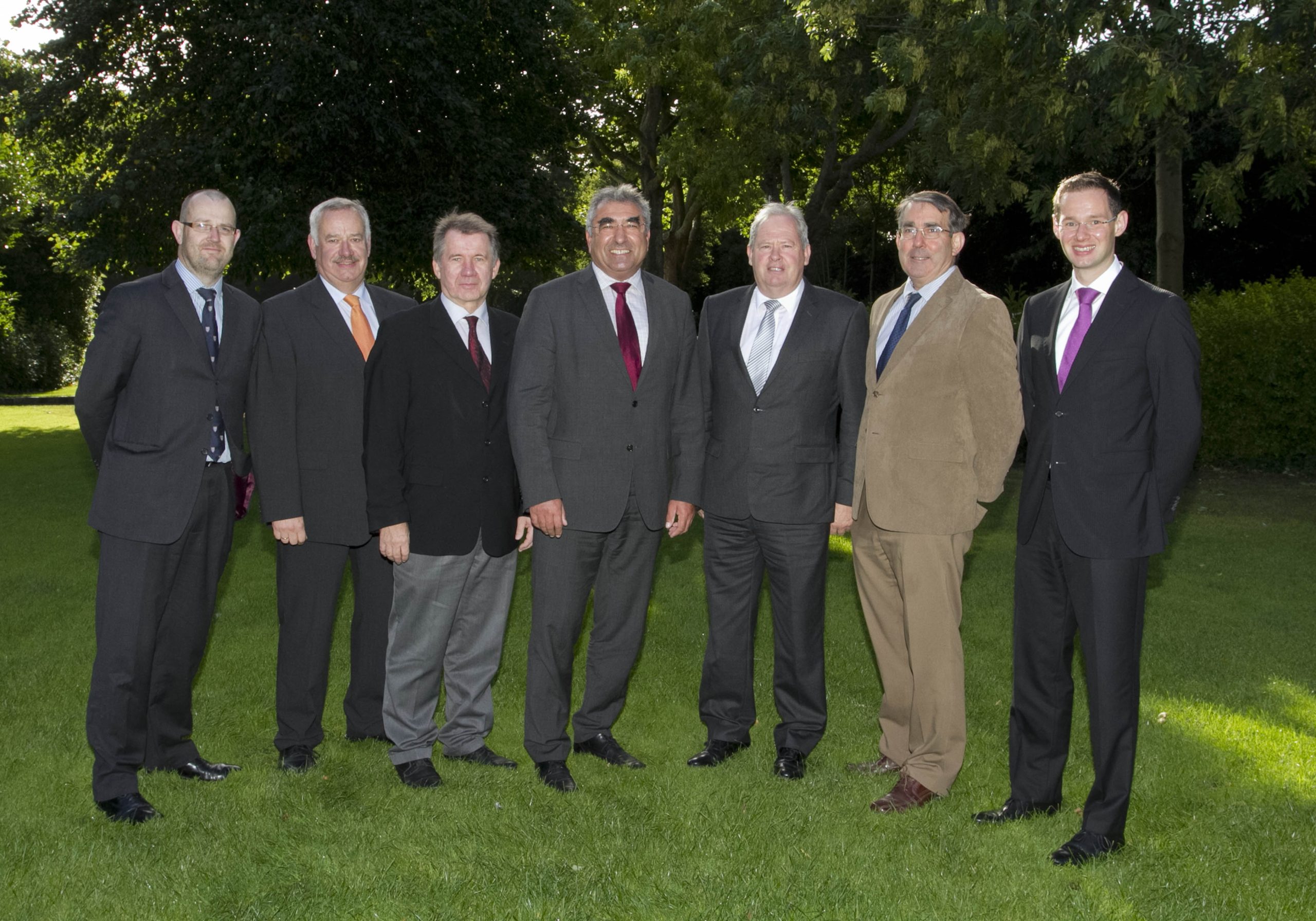German and Irish Dairy Industry declare United Front against any suggestion of Milk Supply Management Post-Quota

Senior German dairy figures travel to Dublin for Joint Declaration with Irish counterparts
Dairy interests in 13 European countries opposed to supply management concept
ICOS – the Irish Co-operative Organisation Society – has demanded that proposals which may emerge for the establishment of European milk supply controls, following quota abolition in 2015, should be unequivocally ruled out by the EU.
The ICOS position was today backed by a special delegation of senior German dairy industry figures in Dublin today including officials of the German Farmers Association (Deutscher Bauernverband), the Rhineland Farmers Association, the Lower Saxony Dairying Association and the Bavarian Association of Dairy Farmers.
The German Delegation and ICOS issued a Joint Declaration against any suggestion of milk supply management post-quota. The Declaration comes in advance of the forthcoming EU Dairy Conference (Brussels 24th September), at which the future of EU dairying will be discussed.
In total, ICOS and a coalition of co-operative and farming organisations in 13 European dairy producing countries are opposed to any such ‘dangerous proposals’ for a discretionary levy which the EU could use anytime to curtail milk production by dairy farmers.
Speculation is growing that French MEP Michel Dantin may seek to resurrect his proposals for supply control measure first put forward in a report by him last year on Common Market Organisation. Mr. Dantin’s proposals are believed to have the backing of French policy makers and dairy interests in France. This comes in spite of the fact that the milk quota system will be abolished in 2015 and the entire dairy industry is in fact poised for liberalisation and expansion.
The Joint Declaration issued today by the combined German and Irish delegation, re-iterates the position of the European Coalition of dairy interests:
T.J. Flanagan, Dairy Policy Executive of ICOS said:
“Along with our partner organisations around Europe, we strongly reject any proposals for supply controls post 2015. EU markets and milk prices are now firmly influenced by world supply and demand. Attempts to force European farmers to reduce supply, in times of market difficulty, will do nothing to strengthen world markets. All that will happen is that European competitiveness will be undermined, unit costs will rise, and the giant exporters like the Americans and New Zealand will gain further.
“The EU Commission must examine and develop tools which will help farmers to cope with the inevitable volatility which will arise in world markets. The US is becoming increasingly influential, and we should learn from their experiences in terms of futures markets, and farmer income protection. Right now, there are very few tools available to protect producers’ margins. This presents grave risks to expanding producers. There is a responsibility on all of us to try to protect producers. However, milk supply controls do not form part of this equation.”
“The Irish industry is investing millions of euro in future expansion plans. Farmers are also looking forward to future growth where the national aspiration of Food Harvest 2020 sees dairy output increasing by 50% when quotas are abolished. What the dairy industry needs is total clarity of purpose and direction. CAP Reform and quota abolition should clear the way for growth but any such levy proposals are contrary to that aim.”
“The entire industry must work to ensure that milk supply controls are not included in the final Common Agricultural Policy. The proposal should be abandoned and proposals should instead be formulated to help farmers to market their products successfully.”
ICOS (the Irish Co-operative Organisation Society) represents co-operatives and organisations in Ireland – including the Irish dairy processing co-operatives and livestock marts – whose associated businesses have a combined turnover in the region of €13 billion, with some 150,000 individual members, employing 12,000 people in Ireland, and a further 24,000 people overseas. In total, there are some 1,000 co-ops in Ireland, and the largest 100 organisations employ approximately 40,000 people